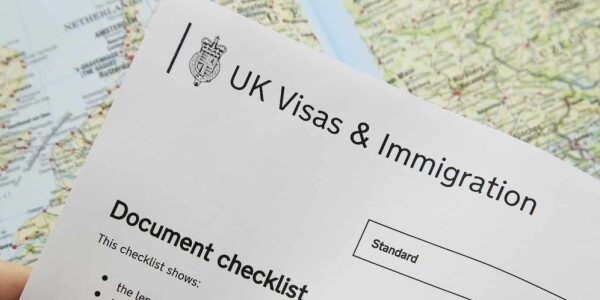
The British government raked in over N68 billion from processing over 225,000 UK visa applications from Nigerians between June 2023 and June 2024.
During the launch of Africa’s largest UK visa application center in Lagos this week, the British High Commission in Lagos quoted the Director of Visa, Status, and Information Services at UK Visas and Immigration, Marc Owen, saying, “In the year to June 2024, we processed more than 225,000 UK visas for Nigerian nationals across all categories and this new partnership demonstrates our continued commitment to ensuring our visa services are accessible, efficient and meet the needs of all applicants.”

The specific breakdown of visa types and their respective fees was not provided. However, information onvisa fees on the UK government website shows that a short-term visa (up to 6 months, single or multiple entry) cost $150, longer-term visas (valid for up to two years) cost $565, visas valid for up to five years cost $1,009, those for up to 10 years cost $1260, private medical treatment (more than six months up to 11 months) cost $262, while short term student visa for more than six months but not more than 11 months cost $262. With the exchange rate at N1,700/$1 and using the student visa rate of $262 as a benchmark for 50 percent of the total applications (112,500) and $150 for the remaining 50 percent, the total revenue generated from Nigerian applicants could conservatively exceed N68 billion. Visa application fees are usually non-refundable, even if the application is ultimately rejected.
However, despite the huge revenue, Nigeria has been experiencing more increase in UK visa rejection rates. In the second half of 2023, Nigeria was among the top five countries with the highest rejection rate. In Q4 2022, one in 31 Nigerian applications were rejected, while in Q4 2023, one in eight were declined.

While the reasons for these rejections are not clear, they are likely linked to tightened immigration policies in the UK, particularly changes to dependent visa rules and the graduate route post-study work visa. Vietnam, Indonesia, and Saudi Arabia also saw high visa rejection rates, though not as high as that of Nigeria.
Many Nigerians are now turning to the United States for higher education opportunities. In 2023/2024, Nigeria became the seventh-largest source of international students globally and the largest in Africa, with over 20,000 students enrolled in US institutions. This represents a 13.5 per cent increase from the previous year.
Credit: The Sun
